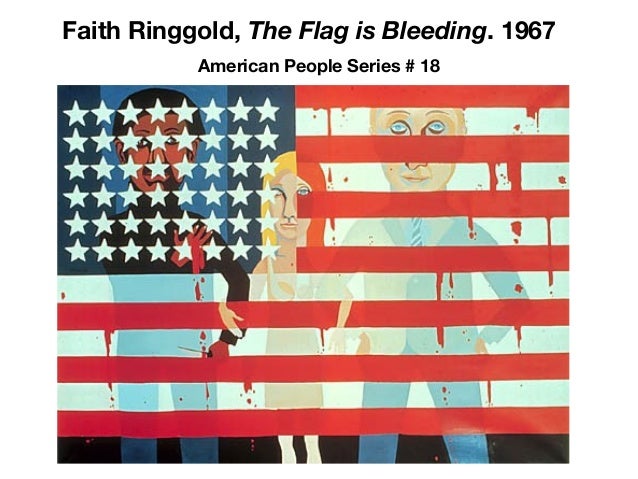Out of all the fascinating exhibits that
are showcased at the Brooklyn Museum, “The
Mural for the Women’s House” by Faith Ringgold initially caught my
attention. The presentation of the exhibit really stands out, especially the
different colors used. My first thoughts about this exhibit was trying to
decode it. What message was the artist trying to send when creating this artwork?
The exhibit depicts an abundance of female figures participating in
professional occupations such as a basketball player, president, bus driver,
and a police officer. The mural was probably created to depict a world where
women were not constantly looked down upon and could become whatever they
wanted to be in life. To create a world of equality, something that people were
skeptical about in the 1970’s. This particular mural is a very important piece
of art especially thinking about the type of world that we all live in today in
the year 2017. Seeing professional female basketball players is not something
odd anymore. The same can be said about female police officers. The United
States has yet to bring a female president into the White House but it will
definitely eventually happen. This mural became a reality decades later.
During 1930, the entire world was facing
racial tensions which was the same year that Faith Ringgold was born. Ringgold
developed a huge interest in art at a very young age and so she went on to
college to study art education at the City College of New York. Then, in the
1960’s, she started to create artwork resembling the discrimination and
prejudice that was common in that era. One of her most influential paintings
named, “The Flag is Bleeding”, shows
the American flag along with three individuals linking arms together. One of
the individuals is a black man while the other two are white. The black man is
holding his hand onto his chest where his heart is. Around the entire flag are
streams of blood running down the stripes which are supposed to represent “the
blood and sweat of the African-American slaves”. Comparing this artwork to “The Mural for the Women’s House”, both
pieces send a message about the role of African-Americans in society. Creating
a work of art depicting female officers and basketball players seemed more like
a fantasy world where black women could pursue any career they wanted without
any form of discrimination against them. “The
Flag is Bleeding” shows the emotions felt by the black individual living in
this type of society. Just looking at these pieces of art can bring a sense of advertisement
just like John Berger has described. Faith’s art can act as a way to influence
other people to listen to her message and try to make a difference. In this
case, Faith is not trying to persuade somebody to purchase a certain product
but instead make people aware of the discrimination present in their surroundings.
Using colorful art can easily attract the eyes of people walking by and it
forces them to examine the picture thoroughly. Then, a person will eventually
decode the picture and understand why it was created and may be influenced to
show others. Just like it is described by Susan Sontag, once an image is created,
it lingers on for a long time making its way to different forms either on paper
or in a museum gaining popularity as more and more people are exposed to it.
One other piece of artwork that is similar
to “The Mural for Women’s House” is “Behind the mask.” This particular piece
could perhaps describe a situation in which everybody has been in. This exhibit
depicts a black woman taking off a jolly looking mask revealing her actual face
which shows her depressed with tears falling down her face. There have always
been times where somebody could be going through an extremely tragic event but
try to always keep a smile on their faces in order to keep themselves from
breaking down in public. However, at the end of the day when that person
arrives at the comfort of their home, that happy fake identity is taken off and
they could end up crying all night long. The fact that the woman in this art
project is black could relate back to the racial tensions that affected the
world decades ago. Black women went out in public trying to keep a positive
attitude when in reality, discrimination made them feel like they weren’t even
part of society. However, crying could be seen as a weak attribute by some
people so others might think it is best to fake a positive attitude in order to
not be judged by others. This exhibit is trying to send a message to make
people aware that everybody is human, and some have gone through different
experiences than others. Judging or discriminating against somebody could have
different reactions from different people. Seeing somebody walking down the
street with a huge smile on his or face may not always mean that life is
absolutely perfect for that person.
Citations
Biography.com Editors. (2016, May 9). Faith Ringgold. Retrieved from https://www.biography.com
Graffagnino, L. (1999, October 9).
SLAVERY: Expression as visual art. Retrieved
from https://journalism.nyu.edu
 |
|
Links
|

No comments:
Post a Comment
Note: Only a member of this blog may post a comment.